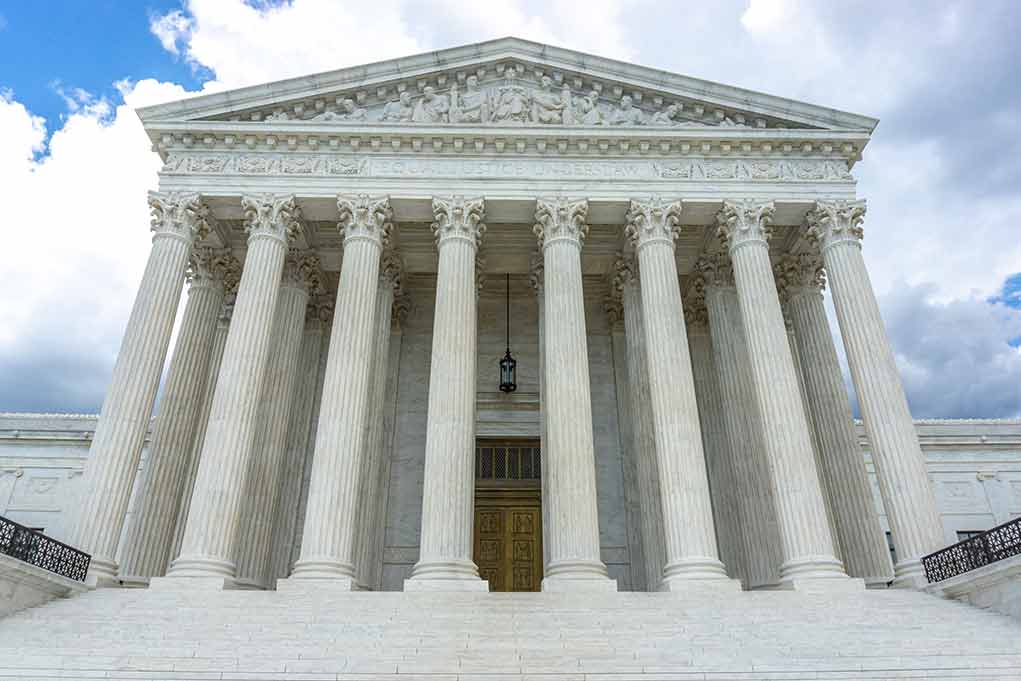
The US Supreme Court will tackle a major constitutional question about retroactive punishment in a Kansas City bank robber’s case that could impact how courts handle restitution orders nationwide.
Key Takeaways
- The Supreme Court will review Holsey Ellingburg Jr.’s claim that extending his restitution obligation beyond its original 20-year term violates the Constitution’s Ex Post Facto Clause.
- Ellingburg was convicted of a 1995 bank robbery before Congress passed the 1996 Mandatory Victim Restitution Act that changed restitution liability terms.
- The case highlights a split among federal courts on whether criminal restitution is considered punishment or merely a civil remedy.
- The government claims Ellingburg still owes $13,476.01 in restitution, nearly double his original $7,500 obligation.
- The Court’s decision could reshape the boundaries between civil restitution and punitive measures under federal law.
A Constitutional Challenge to Retroactive Restitution
The Supreme Court has agreed to hear a significant case from Kansas City that addresses fundamental questions about retroactive punishment under the Constitution. At the center of the dispute is Holsey Ellingburg Jr., who was sentenced to 27 years in federal prison and ordered to pay $7,500 in restitution for a bank robbery committed in 1995. The case highlights an important constitutional question: can the government change the terms of a criminal restitution order after conviction by applying a new law retroactively?
The legal controversy stems from the passage of the Mandatory Victim Restitution Act (MVRA) in 1996, one year after Ellingburg’s crime. Under the Victim and Witness Protection Act (VWPA) in effect at the time of his offense, Ellingburg’s restitution liability would have expired in 2016, 20 years after his conviction. However, the government continues to pursue restitution payments under the newer MVRA, which states that a defendant remains liable for restitution for 20 years following conviction or 20 years after release from imprisonment, whichever comes after.
The United States Supreme Court will use a case from Kansas City to decide the legality of some retroactive punishments. https://t.co/4WXxYcwGGm
— FOX4 News Kansas City (@fox4kc) April 8, 2025
Differing Legal Interpretations
Ellingburg and his attorneys have challenged the continued collection of restitution, arguing that applying the MVRA retroactively violates the Constitution’s Ex Post Facto Clause, which prohibits retroactive application of laws that increase punishment for criminal acts. Despite these objections, a federal appeals court ruled against Ellingburg in August 2024, determining that restitution is primarily a civil remedy rather than criminal punishment, and therefore not subject to ex post facto considerations.
The case highlights a significant split among federal appellate courts on this issue. The Supreme Court’s involvement aims to resolve this judicial disagreement and establish a clear nationwide standard.
Financial Impact and Broader Implications
According to court records, the government claims Ellingburg still owes $13,476.01 in restitution, substantially more than the original $7,500 he was ordered to pay. This increase, likely due to interest and administrative costs, further complicates the question of whether the ongoing obligation represents an impermissible retroactive increase in punishment. The case underscores the real financial consequences for defendants caught between changing legal frameworks.
The Court’s decision, expected after oral arguments in its term beginning in October, could have far-reaching implications for federal restitution practices nationwide. Beyond Ellingburg’s individual circumstances, the ruling will establish whether restitution orders constitute punishment under the Constitution, potentially affecting thousands of federal defendants ordered to pay restitution under similar circumstances. Constitutional scholars and criminal justice advocates are closely watching the case for its potential to reshape the boundaries between civil remedies and criminal punishment.
Sources
- US Supreme Court to hear KC case to determine legality of retroactive punishments
- Court adds two cases on Sixth Amendment and retroactive punishment to fall docket
- Supreme Court Agrees to Hear Challenge to Retroactive Punishment




